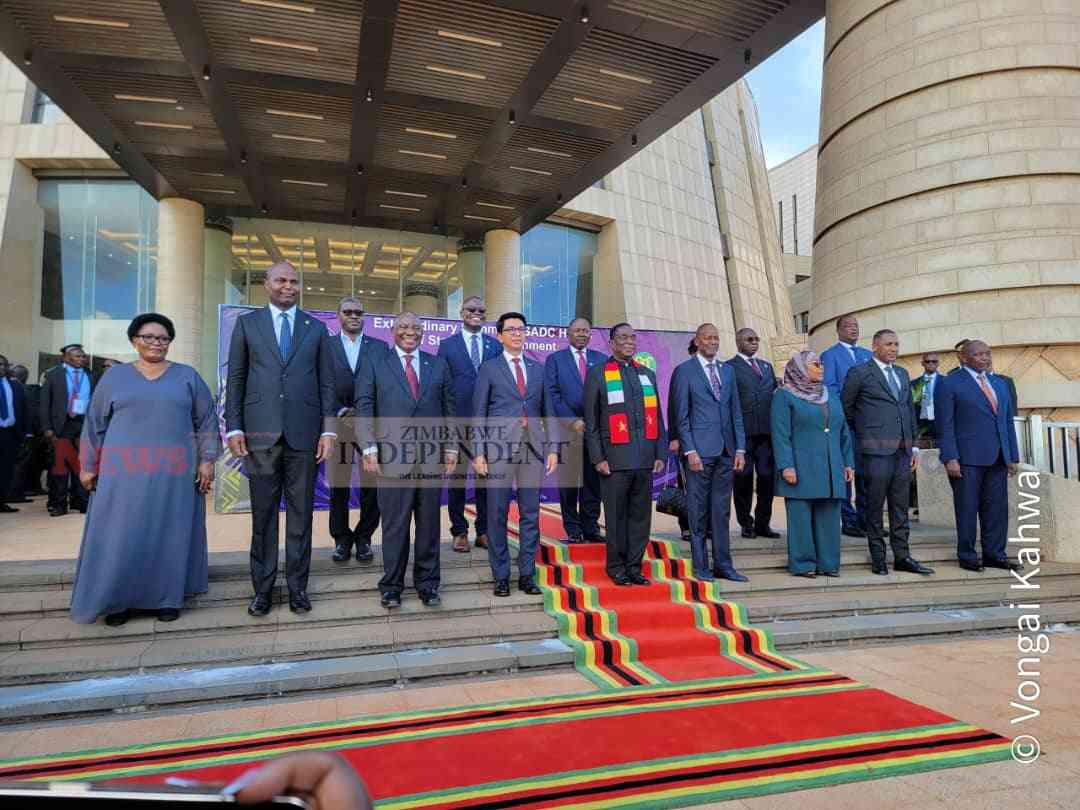
SADC leaders yesterday met in Harare to discuss the crisis unfolding in eastern Democratic Republic of Congo (DRC), which is threatening to destabilise the region.
Emotions are flying high.
Rwandan President Paul Kagame is itching for a fight with his South African counterpart, Cyril Ramaphosa, judging by his comments.
“If South Africa wants to contribute to peaceful solutions, that is well and good, but South Africa is in no position to take on the role of a peacemaker or mediator. And if South Africa prefers confrontation, Rwanda will deal with the matter in that context any day,” he said in remarks published in the media on Wednesday.
Last November, the regional leaders met again in Harare to review the security situation in the region, with focus on the situation in the eastern part of the DRC.
Last time, 12 of the 16 Sadc heads of State sent representatives to the summit.
This time, presidents Boko Duma (Botswana), Cyril Ramaphosa (South Africa), Samia Suluhu Hassan (Tanzania), Daniel Chapo (Mozambique), Ntsokoane Samuel Matekane (Lesotho), Andry Rajoelina (Madagascar), as well as current Sadc chair President Emmerson Mnangagwa and Sadc executive secretary Elias Magosi were in attendance.
It means only seven of the 16 heads of State in the region physically attended.
- In Full: Fifteenth post-cabinet press briefing, June 07, 2022
- Health talk: Be wary of measles, its a deadly disease
- Media challenged to expose all forms of phobias
- Power crisis needs practical solutions
Keep Reading
Our leaders need to be serious when it comes to addressing the bloc’s challenges.
If not well addressed, there is a risk of ripple effects and destabisation of the region as a whole.
Lives are being lost in the eastern DRC, with thousands killed, others displaced and many more uncertain of their future.
Said Mnangagwa yesterday in his welcome remarks: “Regrettably, since our last meeting, very little progress has been made in our search for lasting peace in the Eastern DRC, which is now characterised by escalating hostilities and conflict.
“This culminated in the unfortunate and atrocious attacks carried out on our Mission in Goma, that claimed the lives of several SAMIDRC [Sadc Mission in the Democratic Republic of Congo] and Monusco [United Nations Organisation Stabilisation Mission in the Democratic Republic of the Congo] peacekeepers, while others sustained serious injuries.”
Yesterday’s meeting was the second Extraordinary Sadc Summit in a space of two months, highlighting the seriousness of the issue at hand.
Magosi understands how serious the situation is: “In the last few weeks, we have witnessed intensified attacks by the M23 armed group on SAMIDRC and the Armed Forces of the DRC (FARDC) bases, leading to the loss of 16 members of our troops and multiple casualties, now more than seventy.
“All these attacks came against the backdrop of an agreed ceasefire, which was brokered through the Luanda Process led by His Excellency João Manuel Gonçalves Lourenço, President of the Republic of Angola and the African Union Champion for Peace and Reconciliation in Africa.
“With its consistent support for political and diplomatic interventions to resolve the conflict, Sadc had hoped that the said ceasefire would yield a meaningful and visible cessation of hostilities in the Eastern DRC to prevent more losses and improve the dire humanitarian situation in the area.”
Sadc leaders need to invite Rwanda’s Kagame for some closed-door meetings and ask him to help stop the atrocities that are happening in eastern DRC.
The rebels have grown in numbers and are getting more bold, laying their hands on even sophisticated weapons as they take over towns and city.
It is time he be asked to stop the mess that is happening there, one which he probably helped create as information shows that he armed the initial rebels who led the First Congo War of 1996-97.
A great deal “of our focus and efforts” should be targeted at sustainable solutions that build on this very foundation that has consistently defined the region, as Magosi states.
It is now time to be serious and put a stop to the war in the DRC.






